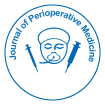
Revista de Medicina Perioperatória
Acesso livre
ISSN: 2684-1290

ISSN: 2684-1290
Richard A Vestal
Ophthalmologic surgeries, particularly cataract surgeries, are amongst the most frequently performed procedures in the United States and worldwide. These procedures are generally associated with a low risk of major adverse complications and are well-tolerated. Traditional scoring systems used to calculate the risk of perioperative complications are not applicable to ophthalmologic surgeries and may overestimate risk, potentially leading to unnecessary development of worsened vision or vision loss. Conversely, while these surgeries are generally associated with a low risk, outcomes are improved when comorbid conditions are identified, communicated to the ophthalmologist, and effectively managed. Additionally, routine preoperative testing is frequently ordered, but rarely indicated. A reduction in unnecessary preoperative testing has substantial potential to reduce the economic impact on healthcare costs in this patient population.
Of particular note, the perioperative management of antiplatelet therapy and anticoagulation in the patient undergoing ophthalmologic surgery can be confusing. Internists may not have an adequate understanding of the bleeding risks associated with common ophthalmologic surgeries, and ophthalmologists may not have an adequate understanding of which patient populations are at highest risk of adverse events from an interruption of therapy. A better understanding of the bleeding risks associated with common ophthalmologic surgeries can help the internists provide more accurate recommendations to the ophthalmologist to allow for a more appropriate treatment plan in the perioperative setting and help determine optimal timing of surgical intervention.